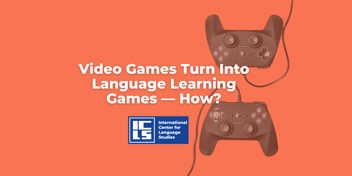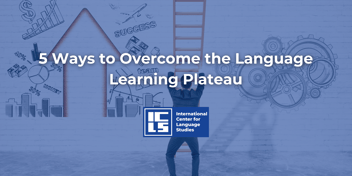Learning a Language as an Adult: Unique Strengths and Benefits

By Edwige Simon, PhD, Online Learning and Instructional Technology Director.
We hear a lot about the benefits of learning a language as a child but much less about the unique strengths and advantages that adults bring to the language-learning table. If you’ve been reluctant to start a new language because you think it’s too late, read on. As an adult learner, you have much more going for you than you thought.
-
Intellectual Development and Life Experience
As an adult, you have more developed cognitive skills than children, allowing you to understand abstract concepts, identify patterns, and make connections between different pieces of information. This ability can help you grasp nuances in a new language faster than younger learners.
In addition, adults typically have a better understanding of how they learn and can employ custom strategies to optimize their language learning experience. This self-awareness and ability to reflect on your learning can be a significant advantage when learning a language as an adult. Over the years, we interviewed adult language learners about their experience learning a language (see our Profile of a Lifelong Language Learner blog series), and they shared with us strategies that they developed for themselves. When Aaron decided to travel through South America, he knew he would need to learn Spanish but he did not solely rely on being immersed in the language to pick up Spanish. He developed a system that worked very well for him:
“I started picking verbs, and I learned to conjugate them in the past, present, and future tense. I would adapt the sample sentences and the verbs to form new sentences that I needed to ask. Like, “How far away is this?” Or “Where is a good hotel?”
Burke didn’t know any Spanish when he traveled to Nicaragua for a volunteer project, but, just like Aaron, he developed a strategy to practice Spanish with himself and it also proved successful:
“I spend a lot of time having conversations in my head, and when I come to a word I don’t know, I look it up. That’s how I expand my vocabulary. It’s not always easy. I learn and forget and relearn a lot.”
As an adult, you have spent a significant amount of time in school, taking classes, and refining your understanding of how you learn best. This knowledge will guide your language learning journey.
-
You have a strong command of your native language
The influential relationship between your first (L1) and your second language (L2) is called transferi*. Depending on its nature, transfer can be positive or negative. Negative transfer is also called interference. For example, when a learner pronounces an L2 word with L1 pronunciation.
But transfer can also have a positive impact on the language learning process. If the L2 you are learning has lexical similarities with your L1, you will acquire vocabulary faster. This is where a strong command of the L1 becomes an asset. Having extensive English vocabulary will allow you to recognize a larger number of cognates*.
*For more information on transfer, see Crosslinguistic Influence in Language and Cognition By Scott Jarvis, Aneta Pavlenko Copyright 2008
**A cognate is a word that looks or sound similar in the L1 and L2. For example, the words “concert” or “fruit” are spelled the same in both French and English and mean the same thing. The only difference is their pronunciation.
-
You might have already studied the language earlier in your life
In Becoming Fluent, How Cognitive Science Can Help Language Learners Learn a Foreign Language, Roberts and Kreuz (2015) explain that even though it's been a while since you took French or Spanish, you will relearn vocabulary words faster than somebody encountering them for the first time.
“Relearning is always faster than learning. If you studied Spanish in high school 20 years ago, and you decide to start studying Spanish again, you clearly have an advantage. (p137-138)”
Some of the adult learners with whom we spoke confirmed this:
“Although I hadn’t studied French in over 20 years, I remembered the alphabet, I could still count to 100, I knew the days of the week, the months, and how to ask and tell time. It was all stored somewhere deep in my brain.”
If you took a language earlier in life, and were not successful, don’t hesitate to try again. It might not have been the right time or context for you then, but you are a different person now. Give it another try!
-
You are self-driven
Adults often choose to learn a new language out of personal interest, or a desire to achieve specific goals, such as connecting with their family heritage, advancing in a career, or exploring new cultures. This intrinsic motivation can drive consistent effort, perseverance, and engagement in the learning process.
Adults also typically have clearer and more defined goals for their language learning journey. Whether it's achieving fluency for travel, business purposes, or communicating with in-laws, having a clear purpose can provide direction and focus, enhancing the effectiveness of the learning process.
For example, Debbie, Pamela and Yuko fell in love with the French language as young adults; Aaron wanted to ride his motorcycle across Latin American, Burke wanted to communicate with people while doing volunteer work in Nicaragua, and Stephanie fell in love and moved to Tanzania. All the lifelong Language Learners with whom, we spoke are internally motivated to learn a second language and internal motivation is a powerful driving force for learning.
-
You know how to leverage language learning resources
As an adult, you have the skills needed to evaluate and select from a wide range of resources and technologies to tailor language learning to your needs and learning preferences. You can leverage online courses, language apps, immersion experiences, language exchange platforms, and other modern tools to facilitate your learning.
Conclusion
Adults and children learn differently. This is why there is a set of principles and approaches called andragogy that are specifically designed to address the unique learning needs and characteristics of adults (Knowles, 1984).
ICLS has provided language training since 1966. Our clients include individuals, government agencies such as the FBI, USAID, the Foreign Service Institute, and organizations such as the Pan American Health Organization, the IMF, and the World Bank, to name a few. With over 80 languages to choose from, a corps of highly skilled and trained language teachers, and in-house curricula, your language learning journey is off to a great start when choosing ICLS. Explore our foreign language classes to find a program best suited to your needs.
References
Knowles, M. S. (1984). Andragogy in Action: Applying Modern Principles of Adult Education. Jossey Bass.
Roberts, R., & Kreuz, R. (2015). Becoming Fluent: How Cognitive Science Can Help Adults Learn a Foreign Language (1st ed.). The MIT Press.


